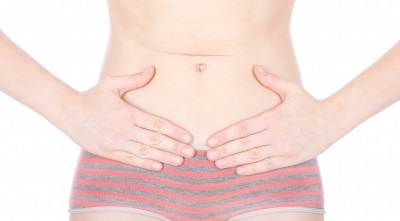Polycystic ovarian syndrome (POS) is a condition that leads to irregular or delayed periods and excessive fat deposition of the body leading to extreme obesity in some women.
Most women will have missed periods followed by heavy menstrual flow and, difficulty of conceiving. excessive hair growth in the body and insulin resistance leading diabetes.
This is a condition that will result in extreme anxiety among women. This condition has both a genetic basis and environmental influences such as;
- Over eating of starchy and oily foods as well as animal proteins.
- Lack of exercises
- Laziness leading to sleeping and reduced physical activity following food or following child birth
Apparently this condition may be transmitted from maternal or paternal genes and aggravated by environmental influences already mentioned.
What happens when you have POS?
When we consider hormonal basis for this condition these women are not producing estradiol ( a type of oestrogen), a hormone that is necessary for follicular growth (simply said the initial process of producing eggs) in the ovary. Ovarian hormone activity is altered in such way that there is no dominant follicle formation (dominant follicle is the one which is shed as an ovum/egg from the ovary) and estrone (a type of oestrogen) hormone acts on the endometrium ( inner lining of the womb) leading to endometrial thickening or hyperplasia followed by excessive bleeding during menstruation.
What are the impacts of having POS?
Women who have this condition have increased level of male sex hormones such as androstenedione and increased sex hormone binding globuline. These hormones cause excessive hair growth and enlargement of the clitoris.
Increased androgens acting on the skin leads to acne formation and skin thickening known as acanthosis nigricans. Insulin resistance leads to diabetes among these women.
Due to hormonal changes some of these women develop cancers of the endometrium when they are around forty or fifty years of age.
As this condition is a normal variation among women, this is not a disease. They have to learn to live with it and apply lifestyle measures such as diet control , doing regular exercise and getting medical advice when problems arise.
Ultrasound examination of the abdomen and pelvis helps in the diagnosis of the condition in addition to hormone level estimation as mentioned earlier.
Specific problems such as inability to conceive, menstrual problems and excessive hair growth should be treated by a group of doctors consist of a gynaecologist and a endocrinologists.
How can POS be controlled or treated?
Losing weight or controlling/reducing diet needs personal commitments such as inhibition of desires psychologically and religious activities such as meditation can too help.
As these are having excessive androgen levels in their body their sexual desires or libido may be increased than other women. This also can be suppressed by diverting attention to other activities such as reading, writing, or engaging in sports.


